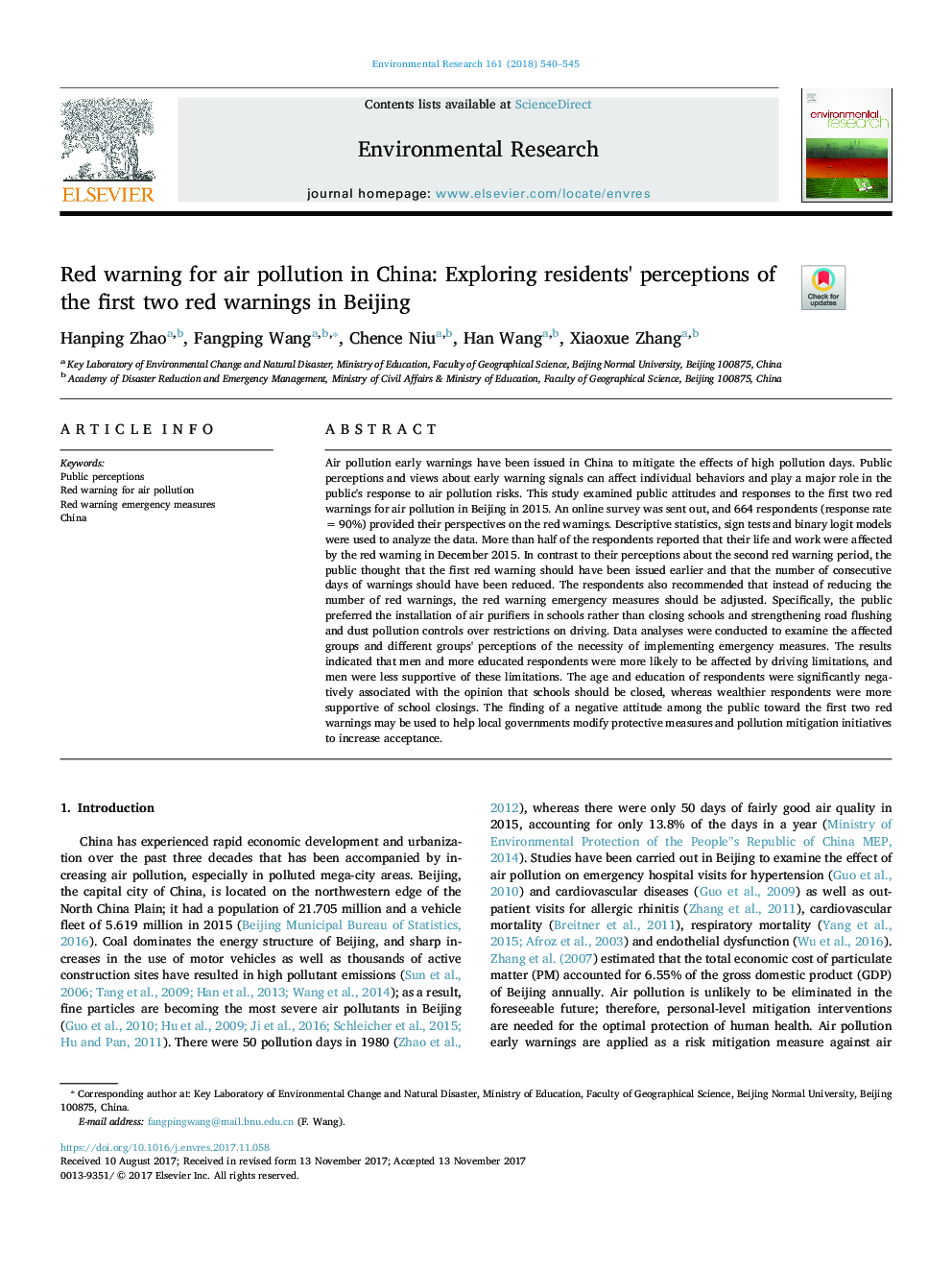| Article ID | Journal | Published Year | Pages | File Type |
|---|---|---|---|---|
| 8869286 | Environmental Research | 2018 | 6 Pages |
Abstract
Air pollution early warnings have been issued in China to mitigate the effects of high pollution days. Public perceptions and views about early warning signals can affect individual behaviors and play a major role in the public's response to air pollution risks. This study examined public attitudes and responses to the first two red warnings for air pollution in Beijing in 2015. An online survey was sent out, and 664 respondents (response rate = 90%) provided their perspectives on the red warnings. Descriptive statistics, sign tests and binary logit models were used to analyze the data. More than half of the respondents reported that their life and work were affected by the red warning in December 2015. In contrast to their perceptions about the second red warning period, the public thought that the first red warning should have been issued earlier and that the number of consecutive days of warnings should have been reduced. The respondents also recommended that instead of reducing the number of red warnings, the red warning emergency measures should be adjusted. Specifically, the public preferred the installation of air purifiers in schools rather than closing schools and strengthening road flushing and dust pollution controls over restrictions on driving. Data analyses were conducted to examine the affected groups and different groups' perceptions of the necessity of implementing emergency measures. The results indicated that men and more educated respondents were more likely to be affected by driving limitations, and men were less supportive of these limitations. The age and education of respondents were significantly negatively associated with the opinion that schools should be closed, whereas wealthier respondents were more supportive of school closings. The finding of a negative attitude among the public toward the first two red warnings may be used to help local governments modify protective measures and pollution mitigation initiatives to increase acceptance.
Keywords
Related Topics
Life Sciences
Environmental Science
Health, Toxicology and Mutagenesis
Authors
Hanping Zhao, Fangping Wang, Chence Niu, Han Wang, Xiaoxue Zhang,
